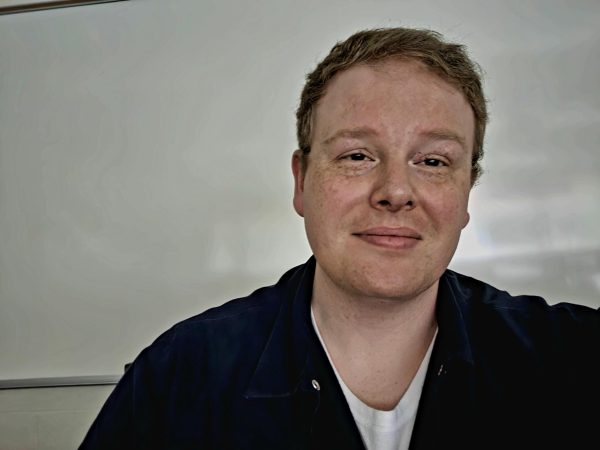Letter to the Editor: East Campus Development? Let’s Really Talk Sustainability
What to make of Oakland University’s now emerging drive to develop a boutique hotel and shopping mall on the northeast corner of campus? I speak here as an educator—twelve years as adjunct faculty in communication on campus (though my main gig is teaching Social Ethics as a Full Professor at Ecumenical Theological Seminary in Detroit). There is much that has already been said and much that still needs to be said. But I will focus on the question of OU’s identity as an educational institution, trying to get at the truth of things, not just serving interest and power.
I would like to propose the East Campus “preserve” of natural topography—as well as all the other “wild” parts of OU’s holdings—as a litmus test for the university’s mission and contribution to a more hopeful future. How can we learn from that little piece of land outside of the corporate desire to re-make it in our image such that its only value is as “resource” increasing something called a bottom line? If our only vision is to re-engineer it for the sake of financial gain—we have already ceased to be an educational institution and become merely a cog in the great consuming machine.
The quintessential and perhaps ultimate sustainability question today—really for everyone, but most incontrovertibly for educational institutions—is deceptively simple and prosaic: Where does our stuff come from and where does it go to? We face a huge accounting problem. We do not take full account of where virtually anything comes from in being produced (mined and shaped out of wild nature) and then discarded somewhere else (“dump zones” here and in the Global South) as “garbage” once its “useful” life is over. And this is true not just for fossil-fuel-energized production, but for so-called green technologies as well. (I sometimes ask my students: What would your life look like if you had to get everything you need to live—food, water, materials for clothing, shelter, transport, etc.—from within 10 miles of where you live and bury all of your waste in your own—not somebody else’s—backyard?) We want to continue outsourcing the costs—to “elsewhere” and the future. But the bill is now coming due.
There really is only so much arable land, only so much drinkable water, only so much breathable air—much less fossil fuel, iron, copper, lithium, coltan, etc. But we just continue on, building, growing our numbers, growing our extraction, growing our cities, growing our technologies, growing our “development,” growing and growing and growing. And growing our levels of garbage and toxic consequences in the environment.
I would be willing to “consider” a boutique hotel (and any other building proposal) if—as part of the proposal—every filament of material and chemical input used in its construction with all of the attendant supporting technologies to make those primary technologies possible in the first place is accounted for in a clear cost-benefit analysis, carried out to say, seven generations, complemented by a rigorous analysis of the projected depreciation and the conditions of demise of all of those materials and what happens with all of them as they break down and re-configure the environment in different forms. Where does the sand come from for the concrete, the steel for the support columns (indeed for all the tools, trucks to transport, bulldozers to clear, pipping and fixtures), the wood for infrastructure and scaffolding, the glass for windows, the plastic for packaging, the Kevlar, the carbon fiber, the brick, the stones, etc., not to mention all of the e-products used to calculate, tabulate, and yes, account, etc. (one cellphone alone has more than 1000 parts/substances coming from all over the earth). Out of whose labor, paid what? And with what kind of afterlife upon depreciation and disposal? Ridiculous, you say? But not learning to calculate such, not recognizing everything is finite and all of it recycles—ultimately back into our own bodies—is now quickly leading us over the cliff’s edge. Recycling is not something we do; it is something we are—as is everything else on the planet.
And I already know what my verdict would be. A boutique hotel—as indeed many, many other “things” we have taken for granted and want to continue to produce and enjoy in this runaway party called modernity—comes at the expense of the future of the planet, of your kids as of the offspring of more than five trillion species, now being shuttled off into extinction at a rate 1000 times greater than all of the rest of our time on the planet (up until the last 50 years or so), not to mention what is happening to plant life. We don’t want to have to calculate such things—much less figure out a way of living within real limits (halting the delirium that we can grow and develop forever). All we want is to bury our heads in the sand, tweak our development with a few saved trees and installed solar panels, call it all “green” and pour another martini. The problem is, we are running out of sand. Literally.











